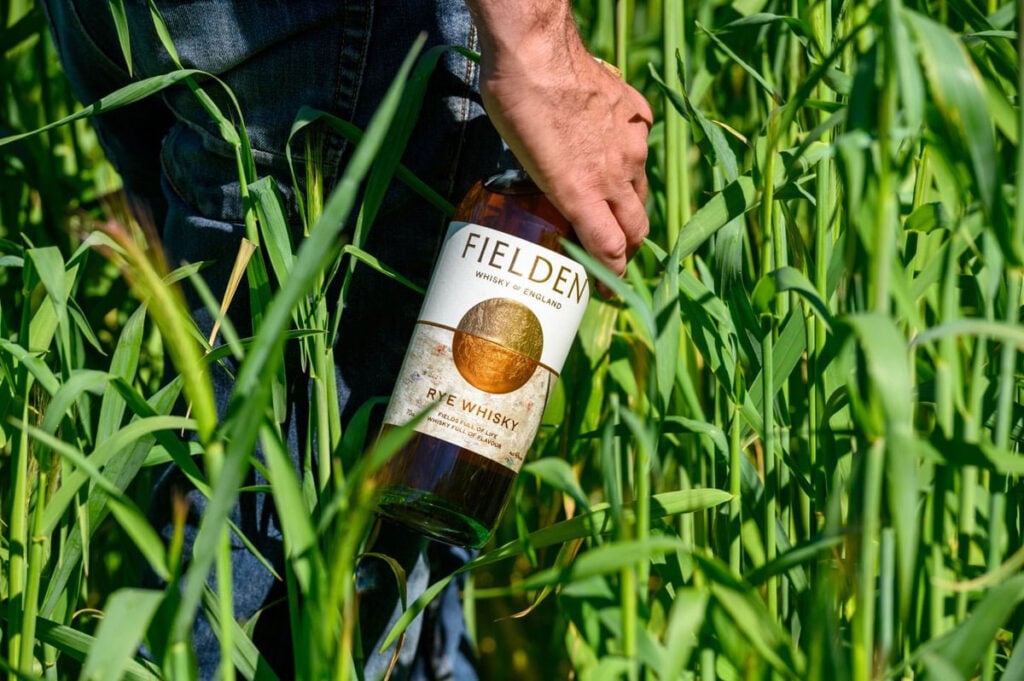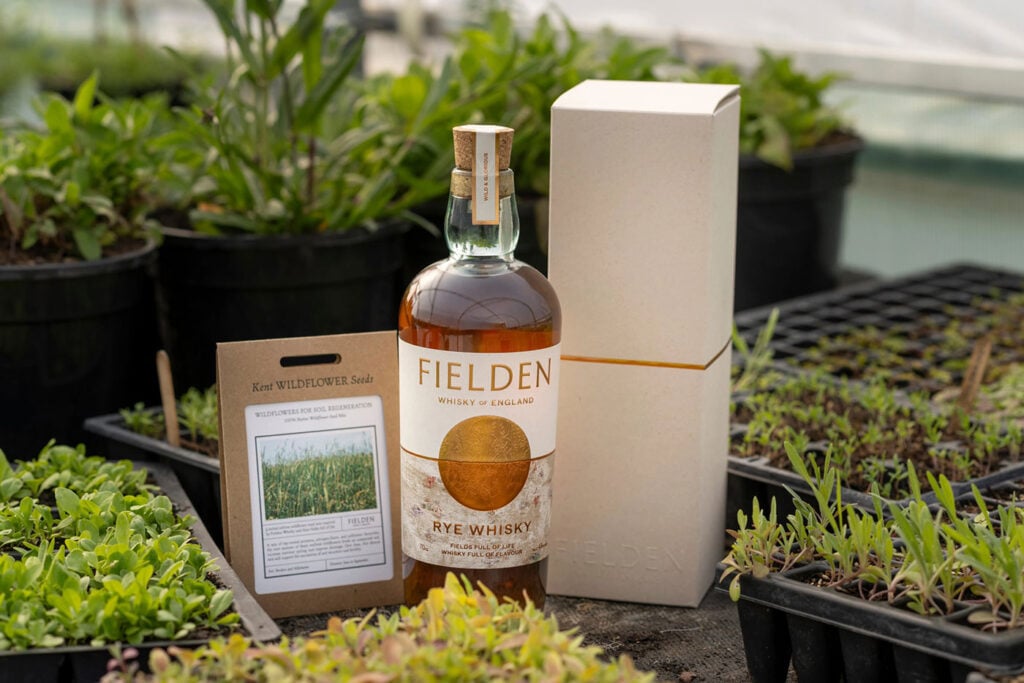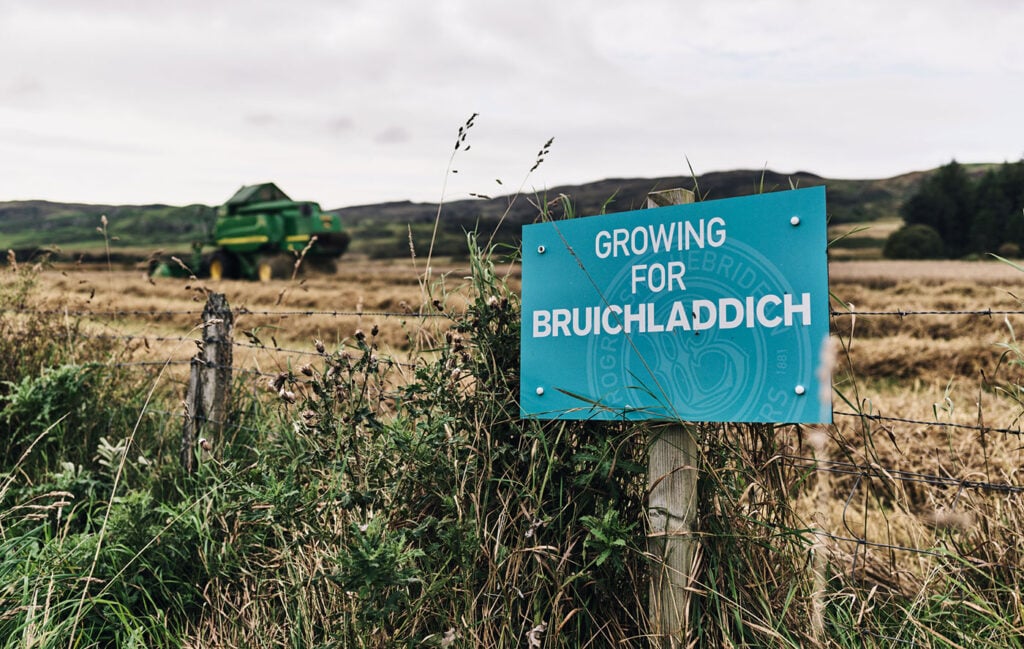Whisky is agriculture.
Behind each dram lies a subject, a farmer. A battle with the weather older than any stills.
Whisky makers have lengthy waxed lyrical about provenance and craft. However one thing deeper is taking root underground.
Regenerative farming. It’s not a brand new idea. It’s an old-school approach of working the land, introduced again with radical intent. This return to the outdated methods represents a brand new path for some in whisky. Proof, if it had been wanted, that typically, you actually do look again to maneuver ahead.

All whisky begins as grain.
What’s regenerative farming (and why ought to whisky care)?
Regenerative farming is a system of agriculture targeted on therapeutic the land relatively than exploiting it. It prioritises soil well being, biodiversity, and long-term resilience over short-term yield. Consider it as nature-forward farming that values what’s underground as a lot as what results in your glass.
As an alternative of chemical fertilisers, it depends on pure cycles. Utilizing cowl crops to forestall erosion, rotating grains to revive vitamins, and integrating animals to assist fertilise and aerate the soil. Heritage grains play a giant function too: deep-rooted, low-input varieties that thrive in actual soil, not artificial ones.
It’s gradual. It’s labour-intensive. And it’s about as removed from industrial agriculture as whisky can get. It’s course of and planet over yield-at-any-cost. It’s not economical, it’s an idealistic strategy. However whisky makers embracing this shift are usually not simply chasing flavour, they’re backing a mannequin that would change how we perceive agricultural accountability in spirits.

Fielden by title…
Fielden: Rye with a radical agenda
British rye producer Fielden Whisky is among the most uncompromising voices on this house. The model is actively reshaping whisky’s relationship with the land, refusing chemical substances, and stewarding 1,400 acres by way of regenerative practices.
“Individuals don’t actually know the agricultural processes behind the drinks they’re ingesting,” says the Fielden crew. “If you happen to don’t know what you’re consuming, it’s onerous to care about it.”
Fielden’s motto is evident: no chemical substances, no compromise. “We sacrifice nothing. Taking possession for the best way our model behaves within the subject means we’re a premium-priced whisky. Shoppers can then make a worth alternative from that.”
Neglect the present fetish for terroir. This goes past the thought of affect of place; it’s about making certain that place survives, regenerates, and thrives. Fielden’s land teems with clover, microbial life, and resilient, open-source grains. They collaborate with natural Danish farming networks and actively share their No Chem Regen grain populations to assist develop a motion, not only a model.
“It must be a collective motion with integrity. The greenwashers and grainwashers have the potential to do a number of injury. The business should not allow them to.”

Say howdy to Bruichladdich head distiller Adam Hannett
Bruichladdich: Islay’s agricultural alchemy
Bruichladdich Distillery, at all times a couple of steps forward of the curve, has been pursuing flavour by way of farming since its resurrection in 2001. Head distiller Adam Hannett says, “Whisky is an agricultural product and depends on wholesome soils. The imaginative and prescient set out in 2001 has by no means wavered.”
One focus has been Bere barley, a six-row historical grain first planted in Scotland over a thousand years in the past. It yields poorly and makes the equipment groan, however the whisky? Vivid fruit, dense texture, and filled with character.
“We lose a mean of fifty to 60 litres of alcohol per ton in comparison with different standard strains,” says Hannett. “It’s taken time and endurance, however the payoff, in each flavour and environmental impression, is completely value it.”
The distillery is actively mapping soil well being utilizing the Genesis platform, monitoring biodiversity, fertility, and local weather impression on 4 farms and its personal Shore Home Croft. That croft acts as a low-risk R&D web site for regenerative strategies.
In 2017, farming accomplice Andrew Jones grew rye for the primary time. That crop turned The Regeneration Challenge, the primary Islay whisky made with domestically grown rye. Rye improved his soil and minimize fertiliser use by 30%.
The distillery additionally companions with Soil Capital, a carbon and soil well being programme that helps and rewards farmers for optimistic adjustments.

The business is waking as much as what labored earlier than
Diageo and the mainstream shift
Even world gamers are leaning in. Diageo is piloting regenerative agriculture throughout twenty farms in Scotland and a community of agave growers in Jalisco. The goal is to decarbonise provide chains for manufacturers like Johnnie Walker, Talisker, and Don Julio.
Companions Agricarbon and James Hutton Ltd are dealing with the soil well being and carbon baseline information.
It’s not but sweeping reform, but it surely exhibits the path of journey. Regeneration will not be a distinct segment play. It’s getting into the mainstream.

Is the brand new ‘craft’ whisky motion rooted within the soil?
Is that this the way forward for whisky?
Craft, if it ever meant something, was a shorthand for small. No massive cash backing or large-scale manufacturing. Then the perfect developed to discuss with experimental. Evoked by those that spoke of native barley or ferment exploration.
Having no strict definition means craft as an idea strikes with what’s stylish. That’s more and more about producing with care. Making each step matter. That’s an idea prone to the claws of promoting departments. However the place the dial of what’s thought-about ‘craft’ has moved to reveals one thing about what issues inside the business. Whether or not it issues to customers, in fact, is one other matter. The phrase matter has misplaced all which means to me now. Matter, matter, matter. Bleh.
Regardless, whisky seems to be backing regenerative farming. Investing in microbial soil life, various crops, into long-term resilience. Stewardship over extraction. Flavour continues to be the purpose, however the route includes biodiversity, carbon sequestration, and wildflower margins. Whisky that’s made whereas being a part of the answer.
Fielden places it bluntly: “If whisky really needs to speak about terroir, complexity, and authenticity, it wants to begin within the soil, not simply the stillroom.”

Whisky is nothing with out agriculture
The Final Drop: Whisky and regenerative farming
Regenerative farming isn’t the largest story in whisky. However actions like it can kind the core of its subsequent chapter if we get it proper.
Whisky gained’t save the world. However it might’t hold pretending it’s not a part of it. The highway to scrumptious and accountable whisky means digging deeper. Flavour issues. So does the sphere that grew it.


